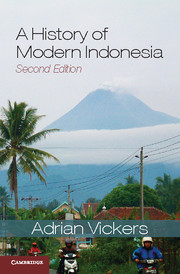Book contents
- Frontmatter
- Contents
- List of figures, maps and tables
- Acknowledgements
- A note on spelling, pronunciation and names
- Chronology
- Introduction
- Chapter 1 Our colonial soil
- Chapter 2 Cultures of the countryside
- Chapter 3 ‘To assail the colonial machine’
- Chapter 4 The Revolution
- Chapter 5 Living in the atomic age
- Chapter 6 From the old order to the new
- Chapter 7 Terror and development in happy land
- Chapter 8 Age of globalisation, age of crisis
- Biographies of key figures
- Abbreviations and glossary
- Notes
- Bibliography
- Index
Chapter 6 - From the old order to the new
Published online by Cambridge University Press: 05 February 2013
- Frontmatter
- Contents
- List of figures, maps and tables
- Acknowledgements
- A note on spelling, pronunciation and names
- Chronology
- Introduction
- Chapter 1 Our colonial soil
- Chapter 2 Cultures of the countryside
- Chapter 3 ‘To assail the colonial machine’
- Chapter 4 The Revolution
- Chapter 5 Living in the atomic age
- Chapter 6 From the old order to the new
- Chapter 7 Terror and development in happy land
- Chapter 8 Age of globalisation, age of crisis
- Biographies of key figures
- Abbreviations and glossary
- Notes
- Bibliography
- Index
Summary
We welcome this social instability because it provides the opportunity for Progress. Progress positively demands an element of instability and even of risk.
Ruslan Abdulgani, later deputy head of the Supreme Council of Review and head of the Committee to Develop the Spirit of the RevolutionIn the early 1970s Pak Sumitra, a local leader in a poor suburb of Jakarta, described for an American sociologist how political control was exercised on a local level. He described how Indonesia shifted from a society polarised between Communists and non-Communists to one in which a distant military government was able to pacify and manage the country. The new government's aim was to create the appearance of order and control.
Pak Sumitra was a veteran of the Revolution, like most political leaders of the times. During the struggle in Tegal, coastal Java, he had come across a magical stone that had protected him from harm when all his comrades were being killed. He attributed to this stone his ability to gain a following when he moved to Jakarta to work in the railway yards, where he became a foreman. The community of which he became the leader consisted almost entirely of railway workers, many of whom were Communists. This man had an antipathy to Communists because members of his family had been killed by them during the conflict in Madiun in 1948. When, around 1955, he became aware that Communists were taking control of the main railway union in the yards, he gravitated to an alternative union linked to the Socialist Party. He voted for that party in the 1957 regional elections and became a main union organiser in 1962, using his social networks to sign up hundreds of workers. By this stage the yards were split down the middle into one or the other faction, and each group of workers became increasingly dependent on their unions to supply them with basic benefits. These benefits included a gamelan musical ensemble that the Communist union obtained for its members and extra rice rations. By 1964 rampant inflation and national political division turned verbal sparring between the two unions into open hostilities. The leader and some of his faction were stoned by Communist union members outside a movie theatre.
- Type
- Chapter
- Information
- A History of Modern Indonesia , pp. 146 - 173Publisher: Cambridge University PressPrint publication year: 2013



